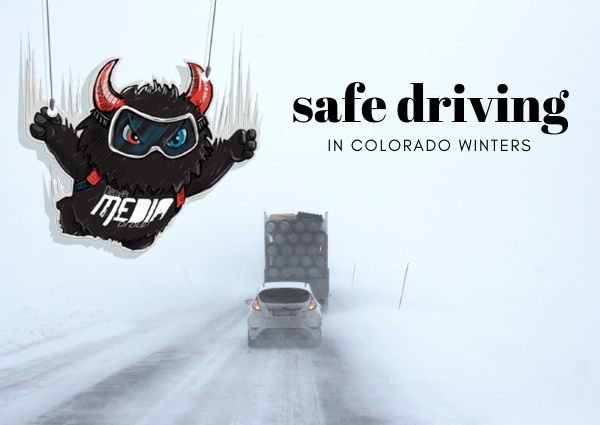Safe driving tips for mountain travel
 https://www.omahamediagroup.com/images/uploads/monster_gallery/Omaha-Media-Group-Black.jpg
https://www.omahamediagroup.com/images/uploads/monster_gallery/Omaha-Media-Group-Black.jpg

We anticipate today to be a heavy travel day! With New Year's Eve on Monday, many people are taking a long holiday weekend to celebrate in the mountains.
With so many people on the road, we’re offering up some safe driving tips for those who have never made it into the mountains.
Driving in the mountains, especially during winter months, is a little risky. It is very important to remain in control when you are driving on snowy and ice-plagued highways.
Teaching someone the necessary skills to successfully deal with an icy road is almost next to impossible. However, it is possible to take measures to prevent such situations.
Here are some of the basic winter safety tips for mountain travel that you must keep in mind.
Make sure that you keep the breaks, exhaust systems, and windshield wipers in good condition
Making sure that your vehicle’s brakes and that the transmission fluids are properly filled and changed within the recommended intervals is very important.
Brake fluid can accumulate moisture and contaminants as it ages which lowers the boiling level. Frequent pumping of the breaks also overheats the fluid causing a loss of efficiency when needed. Proper inflation of tires should also be checked before driving.
It’s all about the tires
Most drivers know that tires can be the difference between safety and accidents. When driving in snow, make sure to have tires with adequate snow traction.
A standard winter tire typically requires at least 6/32-inch tread while a new passenger car tire comes with a 10/32-inch tread.
Don’t always hog the center line
Several mountain roads are narrower than interstates and highways which is why drivers have a tendency to hog the center line.
Not only is this unwise, but it is also frustrating for drivers behind you. If you are driving on the centerline, and another driver like you is coming from the opposite direction, then it may cause the drivers to panic resulting in a very messy situation.
Four or none
If you are opting to purchase winter tires, it’s wise to go for a full set. Do not mix and match different types of tires.
Mounting winter tires on the front will make it prone to spinning in the snow while putting in the back of the rear will make it difficult for you to turn the car.
When exploring unpaved side roads, follow these:
- Before driving, always check the local weather and road conditions.
- Slow down to take curves on a wider arc.
- Always let the fellow drivers on the road know when you are expecting to make a turn.
Take frequent breaks
Navigating mountain roads, especially the ones covered in snow, can be more tiring than flatland driving.
Many drivers consider driving to be tiring or a burden. But if you have fun and take breaks, any journey can be completed without a scratch.
Safe travels this holiday season!
Posted In: Local Denver Happenings




















